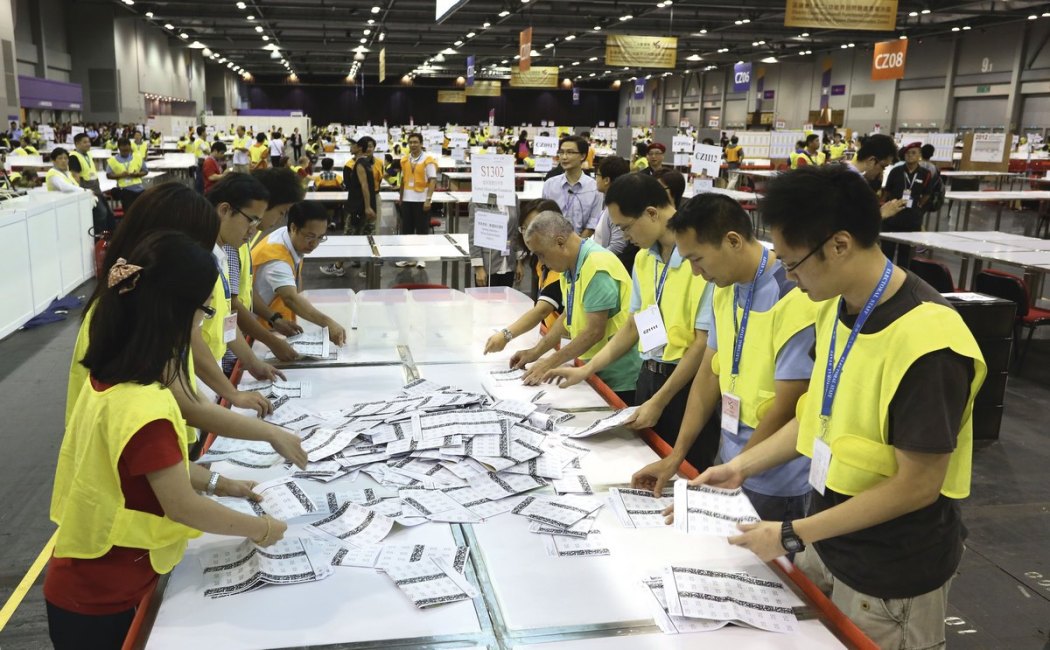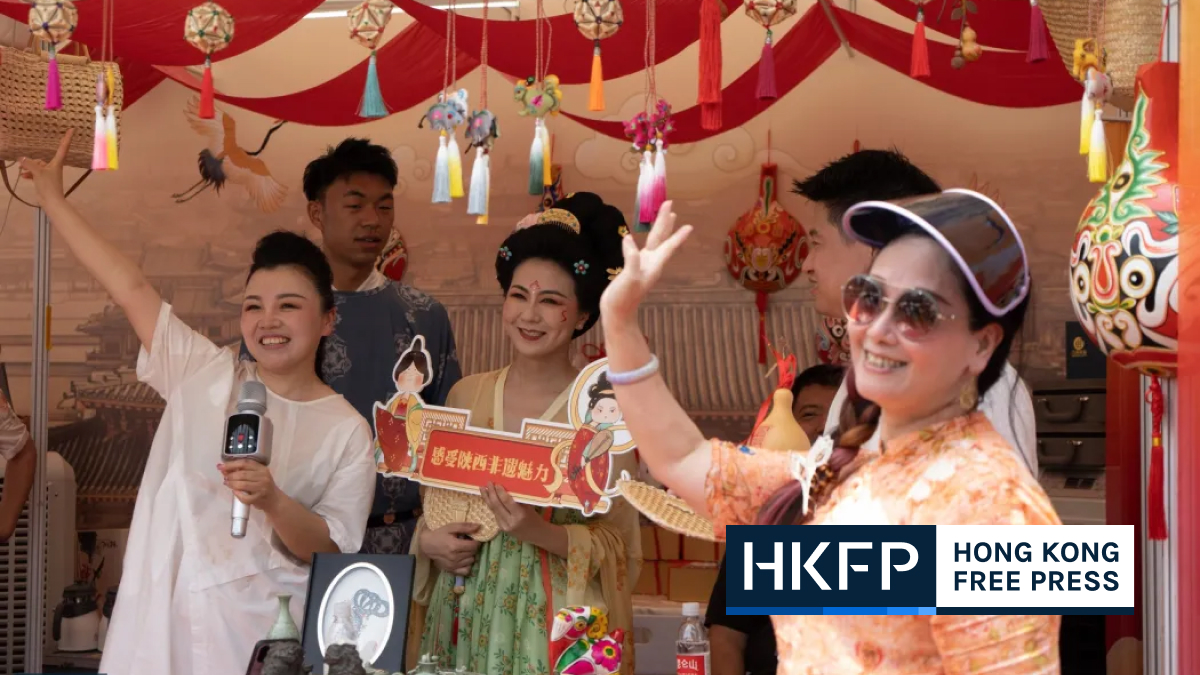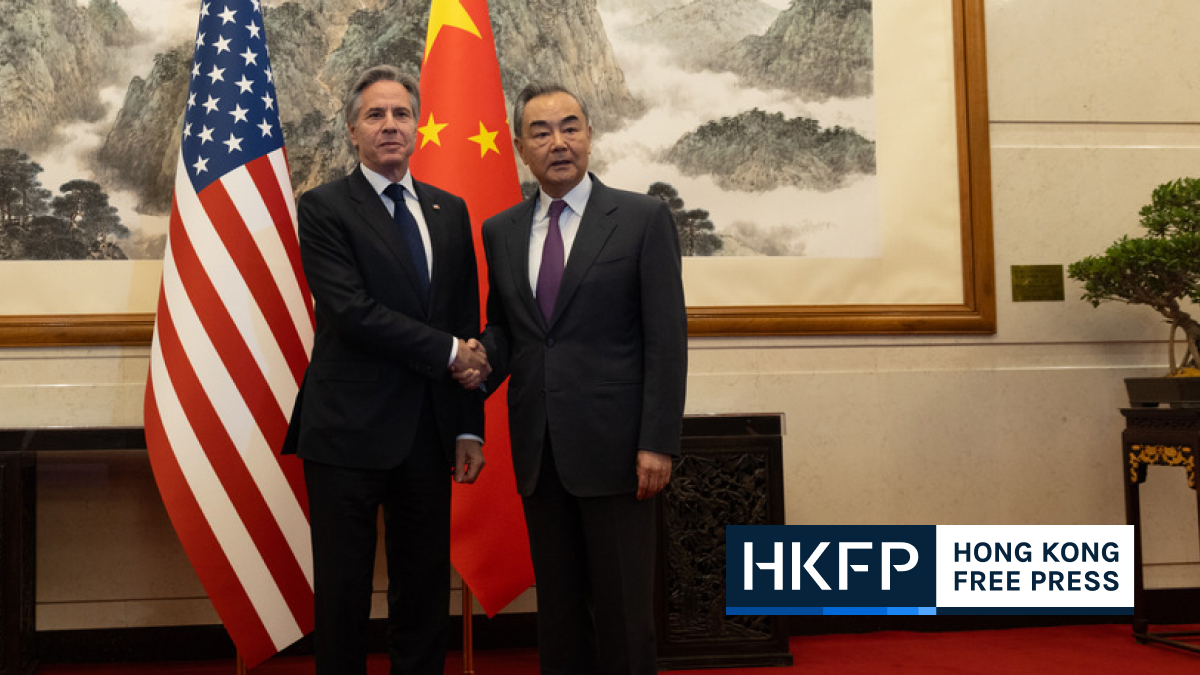A pro-Beijing heavyweight has said that officials discussed cancelling the five “super district council” functional constituency seats in the city’s Legislative Council (LegCo) during a seminar held in Shenzhen.

Rita Fan, former delegate to the National People’s Congress Standing Committee and former president of Hong Kong’s Legislative Council, attended a seminar headed by the Director of the Hong Kong and Macao Affairs Office Xia Baolong.
Xia travelled to Shenzhen for a two-day event over the weekend to receive feedback from members of Hong Kong’s political and business sectors on possible changes to the city’s electoral system. The meeting came ahead of China’s annual plenary sessions this Thursday and Friday, where national-level political decisions are made.
Fan told state news agency Xinhua that topics discussed at the seminar included scrapping five seats in the District Council (Second) functional constituency, which – since 2012 – have formed part of the LegCo’s popularly-elected seats.

On possible changes to the legislature’s electoral system, Fan also suggested redrawing electoral districts, increasing them in number from five to at least ten districts, as well as requiring election candidates to be nominated by members on the chief executive election committee. The 1,200-member body is dominated by the city’s business and political elites that elect the city’s Chief Executive every five years. Fan said the move would “ensure that all nominees are patriots who love Hong Kong.”
A “one vote, two seats” voting mechanism could also replace the current proportional representation voting mechanism, Hong Kong reported, whereby each voter would have one vote to elect two representatives in each constituency or district.

The suggested reforms come after pro-democracy district councillors swept the board in the 2019 race, winning all but one district. Meanwhile, last year’s legislative elections were cancelled owing to the Covid-19 pandemic whilst opposition candidates were riding high in the polls.
Chief Executive election
On reforms to the constitution of the chief executive election committee itself, Fan suggested that 117 seats currently occupied by the city’s district councillors could be scrapped. They could instead be replaced by Hong Kong representatives to the Chinese People’s Political Consultative Conference committee, as well as members of various pro-Beijing federations, such as the Hong Kong Federation of Women, Federation of Youth, or the Hong Kong Commerce and Industry Associations.
Citing Article 97 of the Basic Law, Hong Kong’s mini constitution, Fan said the city’s district councils are not organs of political power, and therefore should not play a political role in the city’s governance, although they currently take up one tenth of the election committee’s seats.

Changes to the city’s electoral methods, however, could not be made through the “Five-Step Process” stipulated by the city’s mini constitution for electoral reform, Fan said, because the legislature currently has less than two-thirds of the members required for the process, after pro-democracy politicians quit in protest en masse last year.
There is little time to roll out any “Five-Step” reform required by law ahead of the legislative election in September and the chief executive election next March. Therefore, “[i]mprovements need to be made by the central government through the National People’s Congress and its standing committee,” Fan said.
Support HKFP | Policies & Ethics | Error/typo? | Contact Us | Newsletter | Transparency & Annual Report | Apps
Help safeguard press freedom & keep HKFP free for all readers by supporting our team

LATEST FROM HKFP
HKFP has an impartial stance, transparent funding, and balanced coverage guided by an Ethics Code and Corrections Policy.
Support press freedom & help us surpass 1,000 monthly Patrons: 100% independent, governed by an ethics code & not-for-profit.










